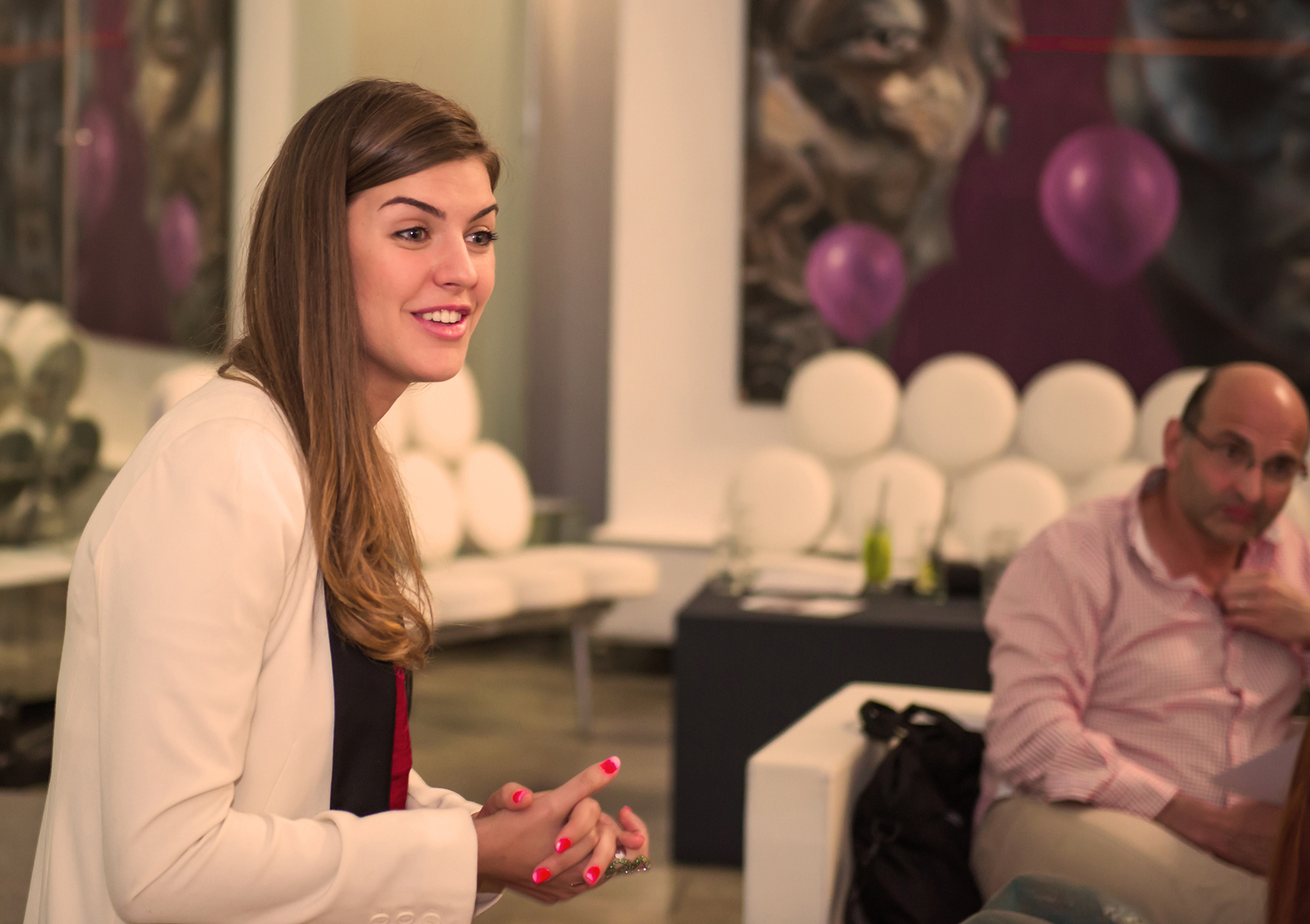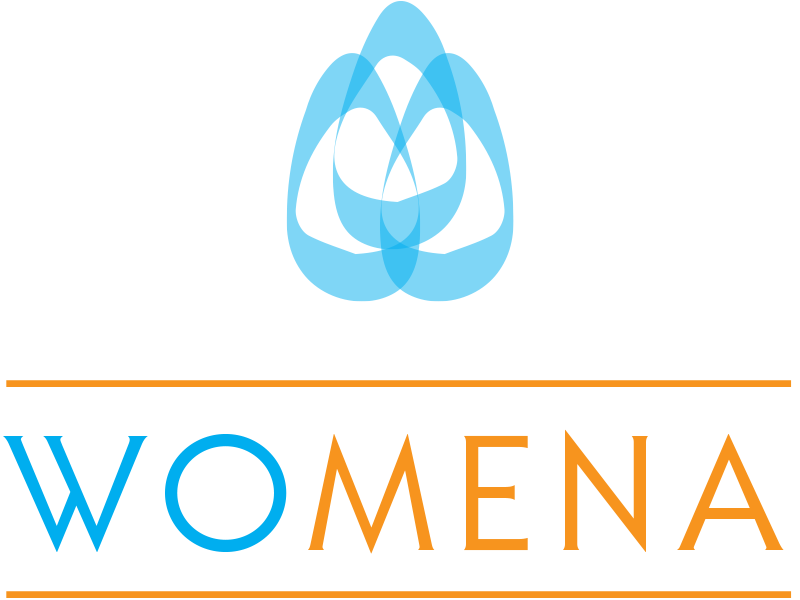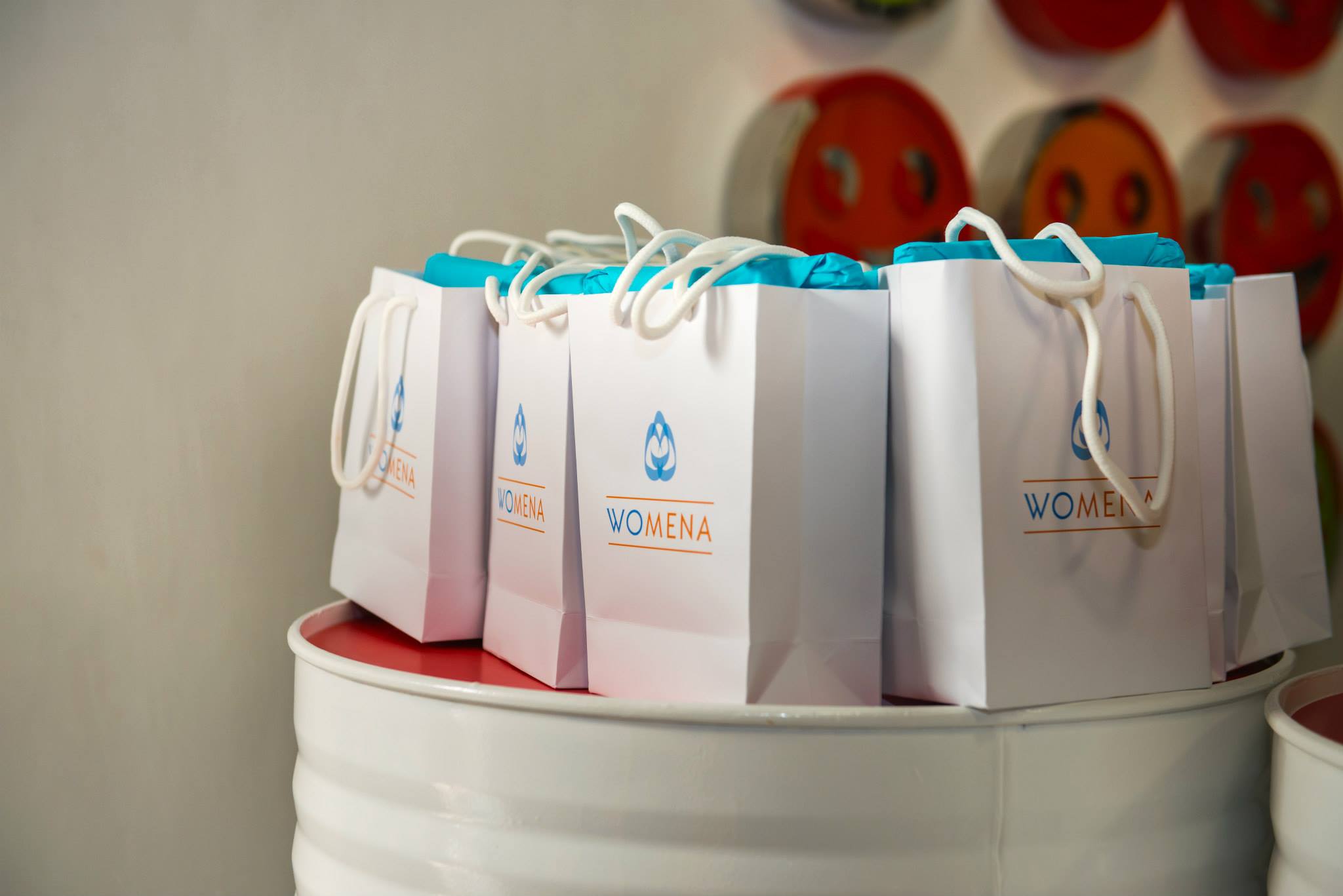This article first appeared on SWAAY.
Curious. Dedicated. Provocative. Renata George describes herself in these three words, but truth is, we’d be kidding ourselves stopping here describing this dynamic woman.
An entrepreneur – turned angel investor – turned VC, she’s mastered navigating the ins-and-outs of the entrepreneurial journey. And now, after being dedicated to entrepreneurs for years, George founded Women.vc – a not-for-profit initiative to advance women in the investment industry.
But she isn't stopping there.
She’s also an avid academic, and she’s combined her background in media and journalistic judgment with hard-hitting research to point out the disparity when it comes to women, especially multicultural women, looking for fundraising. While this fact is sadly nothing new for most budding entrepreneurs, George’s approach is truly revolutionary, in that it offers insightful new findings.
We sat down with this incredible disruptor to dish about the groundbreaking work she’s doing for women’s progress.
“I never thought I’d work for the benefit of women,” says George, who describes her brain as “part male,” and adds that most of her friends are men. “I always thought that I would be working with men, but ironically, since my first business, women were my success story, and it turned out I have something valuable for them to offer.”
Now, she’s become a prominent advocate for women, having proved among other findings, that the net return from women’s portfolio companies is on par with, if not better than, the industry average. For an area dominated by men, this is big news.
Just a taste of what she’s achieved for women in capital markets.
George has been recognized on Forbes USA as one of “The Top Women in Venture Capital and Angel Investing” in 2012. And while that already grounds for one strong and effective female leader, her work goes beyond investment in research, and into the hands of budding entrepreneurs.
So where did it all begin? Coming from a family of doctors, her parents expected her to pursue medicine.
George, however, had other plans. “I was a rebel,” says George, who switched from medical faculty to financial management after 3 years of studying in Medical University once she realized medicine is not her calling. Instead, she decided to learn from a female professor teaching financial management, a rarity at the time.
“When I told my mom what I’d done, she cried for a week,” George recalls. “Later on, however, she said that I did the right choice, and she has been very supportive throughout all my career path”.
In just three years, George graduated from two universities with degrees in financial management and government relationships, having finished both on external basis.
She started working in various media platforms from radio to newspapers, then, established her own publishing house with five magazines in the portfolio, and successfully exited the business. After 10 years in media, George became an angel investor.

Renata George by Sam Saraf
“I went through the hell of being a solo entrepreneur without any investors. But only due to this experience I knew what entrepreneurs need and how I can help them”.
George developed a diverse CV rather quickly, working in government innovation and entrepreneurial pursuits for companies around the world. She soon noticed that many of her portfolio companies started entering the United States market. “That was a time I realized I could contribute to their success having a broad international experience ,” she says. “At some point, I felt it made sense to move and work in United States.”
George’s countless conversations with American innovators and businessmen, coupled with her multicultural background led her to an epiphany. “I realized I cannot belong to any country,” she says, adding that she had developed an understanding of how many different cultures approached business.
“I realized I can be a connector for [various cultures] to Silicon Valley, because I have traveled so much and learned a lot about people [as well as] their ways of doing business,” she says. “But it was only in the United States where I figured that I can definitely bring value to diverse groups here, including women and other underrepresented groups.”
Launching a seemingly simple project.
She began by making a list of female investors in the United States, who would serve as touchpoints for women entrepreneurs. She also built up educational courses and newsletters about venture capital investing.
“Entrepreneurs can learn how venture capitalists think and then speak the same language with them,” says George, who wrote The Manual For Finding A Perfect Mentor For Entrepreneur and Networking Done Classy. “Knowing how your opponent thinks makes a huge difference in negotiations.”
Despite her momentum, there were still voices in George’s life that she felt challenged women’s value.
In an interview a male general partner of a prominent firm said, he cannot find professional women to hire in their firm. “Most of the people took it as an offense to all women, but I personally was not offended. I assumed that he probably meant something different, and decided to dig into the issues.”
With that in mind, George was motivated to prove this opinion wrong or right with data that hadn’t existed before. “Without data you are just another person with an opinion. I decided to take the other road.,” says George, who used a database to crunch some numbers and evaluate female investors’ success levels. “I wanted to check our performance for myself first of all, so me and several women investors decided to check on how well we’re doing.”
George’s findings, which were released in the summer of 2016, showed what everyone wanted to know, but were afraid to ask female venture investors’ performance was on par with, or better, than men’s. “I can’t do everything, but I prefer doing what I can [with this information],” says George, who was finally armed with proof that there is no logical, or economic reason for stifling females in capital markets. And now, with the dramatic shift in the post election political climate, George’s platform is even more timely. “The social climate made diverse groups, especially those who were born outside the U.S. feel insecure, and we realized we can help them too, so we’re broadening our efforts,” she says.
“It may sound controversial, but when people think about themselves as about a cultural, political or business asset, it’s a whole different approach,” says George, who will also be focusing on education through events and information dissemination to help push the needle towards equality. “We want to switch the diversity agenda from personal to professional. Diversity is not merely about gender, ethnicity or sexuality. Behind every different person, there is a value to the community, society and corporations. The problem, though, is not only leaders should see and believe in it, every single person should recognize his or her value to people around. Once you accept it and learn to articulate it clearly, other people will notice that too.”
These days, George is focused on building on a community of multicultural, trustworthy individuals to learn from and support each other. “We want to show people of different gender, ethnicity and sexuality who made it to the top, who represent those diverse groups by their own example. We also encourage professionals among them to provide complimentary advice and mentorship to address current challenges of those who are still on their way to success, such as immigration issues and civil rights. Of course, we focus on assisting entrepreneurs too. Members of our community can actually reach out to these professionals and ask for help.”
This initiative is called Diversity.Capital and dedicated to prove that diversity is a political, cultural and business asset. Renata George is one of the co-founders of the project, which is currently opening branches throughout the United States. Iman Oubou, SWAAY founder, was one of the first supporters of Diversity.Capital and helms the community of influencers and shakers in New York.













